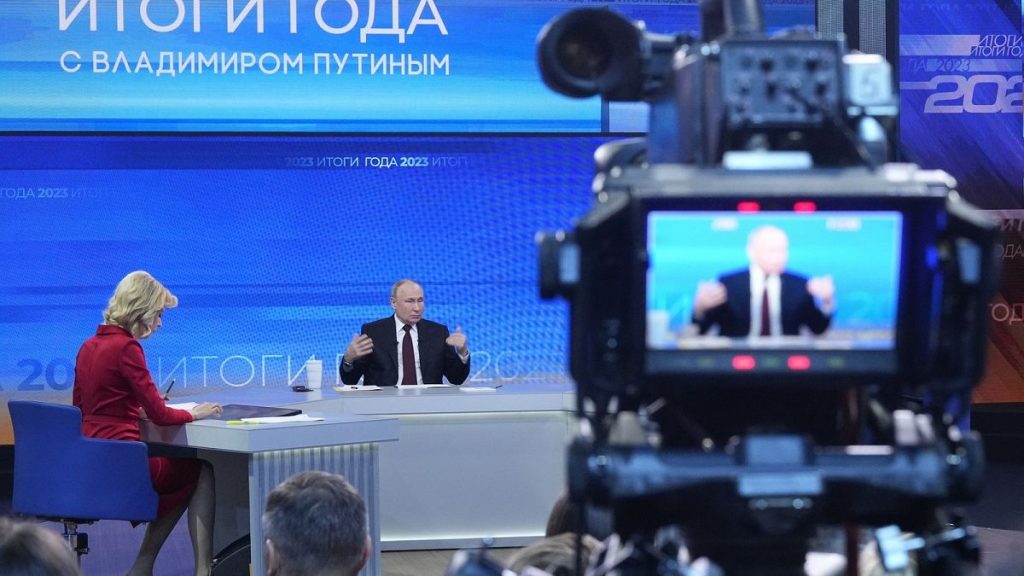The European Union has announced a ban on four media outlets accused of spreading pro-Kremlin propaganda and destabilizing Ukraine’s neighboring countries. These outlets, including Voice of Europe, RIA Novosti, Izvestia, and Rossiyskaya Gazeta, are said to be under the direct or indirect control of Russia and have been instrumental in fostering support for Russia’s illegal invasion of Ukraine. The decision to ban these outlets was made in response to Russia’s systematic campaign of media manipulation aimed at justifying its aggression against Ukraine and destabilizing neighboring countries and EU member states.
The move to ban these media outlets was made just three weeks before European elections, which are feared to be vulnerable to Russian-backed disinformation campaigns. The European Council also announced plans to ban Russian funding of media outlets, NGOs, and political parties in the EU. The EU is on high alert for online Russian disinformation campaigns that may seek to undermine the integrity of the upcoming vote, with officials expressing concerns over the bloc’s readiness to address new forms of foreign interference.
Three of the banned outlets, RIA Novosti, Izvestia, and Rossiyskaya Gazeta, are partially owned or controlled by the Russian state, while Voice of Europe is a Dutch-listed company. Voice of Europe had been at the center of a large investigation into allegations that lawmakers across Europe were paid to promote Kremlin propaganda. Czech authorities broke up a Russian influence operation tied to Voice of Europe, alleging financial transactions had been made to elected officials in the European Parliament and national parliaments across Europe, including Germany, France, Poland, Belgium, the Netherlands, and Hungary.
The ban on these media outlets follows the revelation of an alleged Russian influence operation involving EU election hopefuls in various European countries. A German investigation has been opened into Petr Bystron of the far-right Alternative for Germany (AfD) party, accused of receiving funds from individuals linked to Russian President Vladimir Putin to spread Kremlin propaganda. Czech Prime Minister Petr Fiala stated that the operation aimed to destabilize Europe as a whole, leading to other European countries launching investigations based on Czech intelligence efforts. Belgium has confirmed that it has opened a judicial investigation due to suspicions surrounding members of the European Parliament.
The ban on these pro-Kremlin media outlets is part of a broader effort by the European Union to combat Russian disinformation campaigns aimed at influencing elections and destabilizing neighboring countries. The EU is taking steps to protect the integrity of its democratic processes and prevent foreign interference through media manipulation and propaganda. By targeting outlets that propagate Kremlin propaganda and work to undermine the stability of EU member states, the EU aims to safeguard its democratic values and maintain its resilience against external threats. This move comes at a critical time as the bloc prepares for upcoming elections and works to strengthen its defenses against foreign interference and disinformation.













